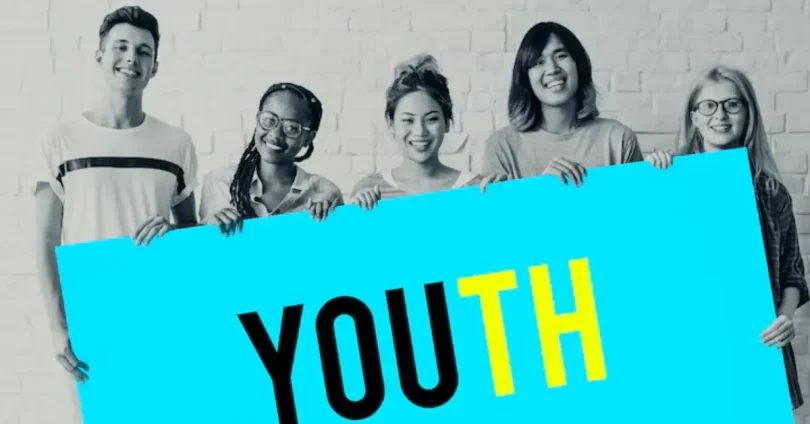Introduction:
Youth empowerment means giving young people the tools, support, and opportunities they need to shape their own lives and build a better future. It’s all about helping them gain confidence, learn new skills, and take an active role in their communities. When young people feel empowered, they can become strong leaders, make smart decisions, and bring about real change in the world around them. In today’s fast-changing world, empowering youth is more important than ever—it ensures that the next generation is ready to face challenges and lead with strength and purpose.
What is Youth Empowerment?

Youth empowerment is the process of encouraging and supporting young people so they can take control of their lives and contribute positively to society. It involves giving them access to education, skills, resources, and opportunities that help them grow personally and professionally.
Empowered youth are confident, responsible, and ready to make informed decisions. They understand their rights, voice their opinions, and actively participate in community development. Whether it’s through leadership programs, volunteer work, or learning new skills, youth empowerment helps build a strong foundation for a brighter and more inclusive future.
Why is Youth Empowerment Important?

Youth empowerment is not just a trend—it is a crucial step toward building a stronger, fairer, and more sustainable future. Here’s why youth empowerment matters:
Builds Confidence and Self-Esteem
- Helps young people believe in themselves.
- Encourages them to set goals and work hard to achieve them.
- Reduces fear of failure and promotes a growth mindset.
Promotes Education and Skill Development
- Motivates youth to pursue education and learning opportunities.
- Provides practical skills that are useful in real life and careers.
- Encourages innovation and creativity.
Encourages Leadership and Responsibility
- Helps youth take active roles in schools, communities, and workplaces.
- Develops leadership qualities like decision-making and problem-solving.
- Fosters a sense of accountability and maturity.
Boosts Economic Growth
- Empowers youth to become job creators rather than job seekers.
- Reduces unemployment and poverty levels.
- Strengthens the overall economy through skilled and productive individuals.
Strengthens Communities and Society
- Encourages young people to get involved in social causes.
- Promotes values like equality, inclusion, and cooperation.
- Builds a more informed and responsible generation.
Prevents Negative Behavior
- Keeps youth engaged in positive activities.
- Reduces risks of drug use, violence, and crime.
- Offers guidance and mentorship to stay on the right path.
Step-by-Step Guide on Youth Empowerment
Empowering youth is a thoughtful process that involves multiple steps. Here’s a simple and practical guide to achieving effective youth empowerment:
Step 1: Understand Youth Needs
- Talk to young people to know their challenges, goals, and interests.
- Conduct surveys or group discussions to gather ideas directly from them.
- Identify areas where they need the most support—education, mental health, career, etc.
Step 2: Provide Access to Education and Skill Development
- Support formal education by making it accessible and inclusive.
- Offer vocational training and digital skills workshops.
- Create mentorship programs with experienced guides and professionals.
Step 3: Encourage Participation and Leadership
- Involve youth in decision-making processes—at school, in communities, and in local governance.
- Promote student councils, clubs, and youth groups to give them leadership roles.
- Encourage public speaking, event planning, and teamwork to build leadership skills.
Step 4: Create Safe and Supportive Environments
- Build youth centers and safe spaces where they can express themselves freely.
- Provide counseling and mental health services for emotional well-being.
- Ensure safety from abuse, bullying, and discrimination.
Step 5: Promote Civic Engagement and Volunteering
- Inspire youth to take part in community service projects.
- Educate them about their rights and responsibilities as citizens.
- Connect them with NGOs and social campaigns to become active changemakers.
Step 6: Offer Career Guidance and Opportunities
- Arrange career counseling sessions in schools and colleges.
- Partner with industries to offer internships, apprenticeships, and job fairs.
- Support youth entrepreneurship by offering small grants or startup training.
Step 7: Celebrate Youth Success
- Recognize and reward youth achievements in school, sports, arts, or community service.
- Share their success stories to inspire others.
- Create award events or online platforms to highlight their impact.
Step 8: Keep Improving
- Take regular feedback from youth on what’s working and what’s not.
- Update programs and strategies based on their changing needs.
- Stay connected with youth voices to keep the empowerment efforts effective.
Advantages and Disadvantages of Youth Empowerment
Advantages of Youth Empowerment:
- Boosts Confidence and Self-Worth
Empowered youth feel more confident in themselves and their abilities. - Develops Leadership and Communication Skills
It helps young people become effective leaders and communicators in their communities. - Encourages Education and Lifelong Learning
Youth are more motivated to pursue education, training, and self-improvement. - Promotes Active Citizenship
Empowered youth participate in social causes and contribute positively to society. - Reduces Risky Behavior
Keeping youth engaged lowers chances of drug use, violence, and other harmful habits. - Supports Innovation and Economic Growth
Empowered youth often bring fresh ideas, start businesses, and boost the economy. - Strengthens Communities
They build stronger relationships with family and community through meaningful involvement. - Fosters Independence
Empowered youth learn to make decisions, solve problems, and become self-reliant.
Disadvantages of Youth Empowerment:
- Risk of Wrong Decisions
Without proper guidance, youth may take steps that aren’t well thought out. - Misuse of Freedom
Some may misuse their power or become overconfident in the wrong way. - Unequal Opportunities
Not all youth have the same access to education and resources, leading to frustration. - Too Much Pressure
Giving too many responsibilities too early can lead to stress and burnout. - Social Resistance
In some communities, traditional views may resist giving youth a strong voice. - Lack of Resources
Empowerment programs need funding, mentors, and tools—without them, success is limited. - Negative Peer Influence
Even empowered youth can still be affected by harmful peer pressure.
Frequently Asked Questions (FAQs) on Youth Empowerment
What is youth empowerment in simple words?
Youth empowerment means giving young people the tools, support, and confidence they need to make decisions, take action, and shape their future.
Why is youth empowerment important?
It helps young people build confidence, learn valuable skills, become leaders, and make a positive impact in their communities and the world.
How can we empower youth?
We can empower youth by providing quality education, leadership training, mentorship, life skills, job opportunities, and a safe space to grow.
What are some examples of youth empowerment?
Examples include youth leadership programs, student councils, community service, skill development workshops, and starting youth-led projects or businesses.
Who is responsible for youth empowerment?
Everyone! Parents, teachers, schools, communities, governments, and organizations all play a role in supporting and empowering young people.
What skills are important for youth empowerment?
Important skills include communication, decision-making, teamwork, critical thinking, self-confidence, and problem-solving.
Can youth empowerment reduce social problems?
Yes, empowered youth are more likely to stay away from crime, drugs, and other negative behaviors. They also help build stronger and safer communities.
Conclusion:
Youth empowerment is the key to building a stronger, smarter, and more responsible generation. When young people are given the right support, opportunities, and encouragement, they can create real change—not just in their own lives but also in their communities and the world. By investing in youth today, we are shaping a brighter and more hopeful tomorrow. Empower the youth, and you empower the future!
Bonus Points on Youth Empowerment
- Start Small, Think Big
Even small acts—like mentoring a teen or supporting a youth project—can lead to big change over time. - Use Technology Wisely
Digital platforms can be powerful tools for learning, networking, and sharing youth voices globally. - Support Youth-Led Initiatives
Trust young people to lead their own projects and campaigns. It builds confidence and real-world experience. - Promote Inclusive Empowerment
Make sure all youth—regardless of gender, background, or ability—have equal access to empowerment opportunities. - Celebrate Youth Achievements
Highlighting and rewarding success motivates other young people to get involved and stay committed. - Encourage Creativity and Innovation
Let youth explore arts, technology, or entrepreneurship as unique ways to express and empower themselves. - Build Strong Mentorship Networks
Connect youth with positive role models who can guide them through challenges and opportunities. - Keep Listening
Youth voices matter. Involving them in decisions ensures empowerment is meaningful and effective.







